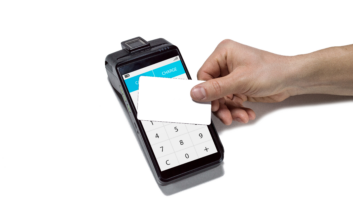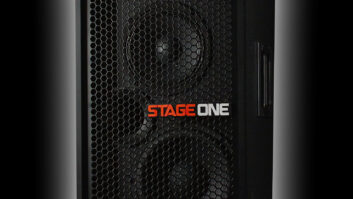Awareness and early adoption of IoT products by everyday consumers is finally at the tipping point where mass-market acceptance is inevitable. To effectively capitalize on this enormous opportunity, retailers of all kinds, especially those with brick-and-mortar locations, can play an important and profitable new role. The IoT will change the game for retailers that sell technology, but only if they’re willing to change their own game along with it.
In order for the IoT opportunity to get to this imminent scale, the technology had to evolve to what consumers wanted and needed. Three evolutions were necessary. First, the products had to become easy enough for consumers to set things up themselves. Manufacturers have made that a reality; there is a healthy and growing landscape of successful do-it-yourself (DIY) smart home products. Second, the products had to become interoperable and cross-brand compatible, because the market demanded it. Five different apps and user interfaces for five different smart products is even worse than the five clumsy hardware remotes that irritated consumers throughout the VHS-DVD era.
Finally, the cost of the products had to come down, and here again, mission accomplished. Not everyone wants elaborate custom-installed wall pads in every room, or a $1,000 universal remote control. Our own SURE Universal Remote Control app has tens of millions of users, and it cost them nothing. Further, it is the first remote control certified by the
Open Connectivity Foundation (OCF)
and already able to control thousands of existing and future smart products regardless of brand — all at this same “price point.” Clearly, some new thinking about selling technology is in order.
Throughout this early stage of the IoT revolution, which so far has been driven by smart home products, retailers have been left on the sidelines. When a do-it-yourself customer goes shopping for smart home, he or she is likely to buy online. When do-it-for-me customers want a system, they usually get it from their cable, broadband, or security provider. In this early adopter split, retailer’s role was diminished, with little added value to offer.
That’s no longer the case, and for IoT sales to reach their true potential, the retailer has a crucial new role to play. Just as was true for the technology, retail must shift to meet consumer needs and desires. Retailers that can execute on these shifts will not only reap the rewards of increased sales, but also new services, better margins, and profitable ongoing relationships with their customers.
The most important missing link in today’s junction of IoT technology and market momentum is technical proficiency. Most members of a mass market don’t have it and many don’t want it. While there will always be a niche for technology savvy DIY consumers, a majority of people find that IoT-type technology is more complex than they’d prefer to deal with themselves. Anyone that’s had to set up even the easiest Wi-Fi router can attest to this. Most mainstream customers will either want a “do it for me” solution, where a technician installs it for them, or a “do it with me,” where the seller provides pre- and post-sale support. Even for DIY products, technical expertise is still needed. Would most consumers know the best places to install a security sensor? This in-store expertise, which harkens back to an older, pre-internet retail paradigm, is now an important new selling tool.
What’s lacking in DIY is service, and service is the new opportunity for retailers. Technical knowledge, direct customer interaction, and increased consumer satisfaction are benefits where brick and mortar can be superior to online. Technical knowledge is also democratic and accessible; any retailer can have its own onboard “geniuses.”
One growth area for monetizing technical knowledge will come through post-sale, because many of today’s IoT devices and systems allow remote diagnostics and troubleshooting. That’s a great advancement for the consumer. Service and support can be had at press of a button on the smartphone, just like Uber. Thanks to the interoperability of OCF devices, SURE Universal has already been able to work on the infrastructure of such a service.
Until then, and even after, there still needs to be a someone that can provide the average consumer with needed technical help, and other people are needed to train those people. Smart products often need smart people as helpers. Retailers need to offload the challenges of learning IoT away from the consumer. That will create a huge opportunity for everyone.
Viktor Ariel is the Founder and CEO of SURE Universal Ltd. (formerly Tekoia) a market and technology leader developing Software Universal Remote (SURE) solutions for Smart Home and the Internet of Things (IoT). For more information, visit
.













